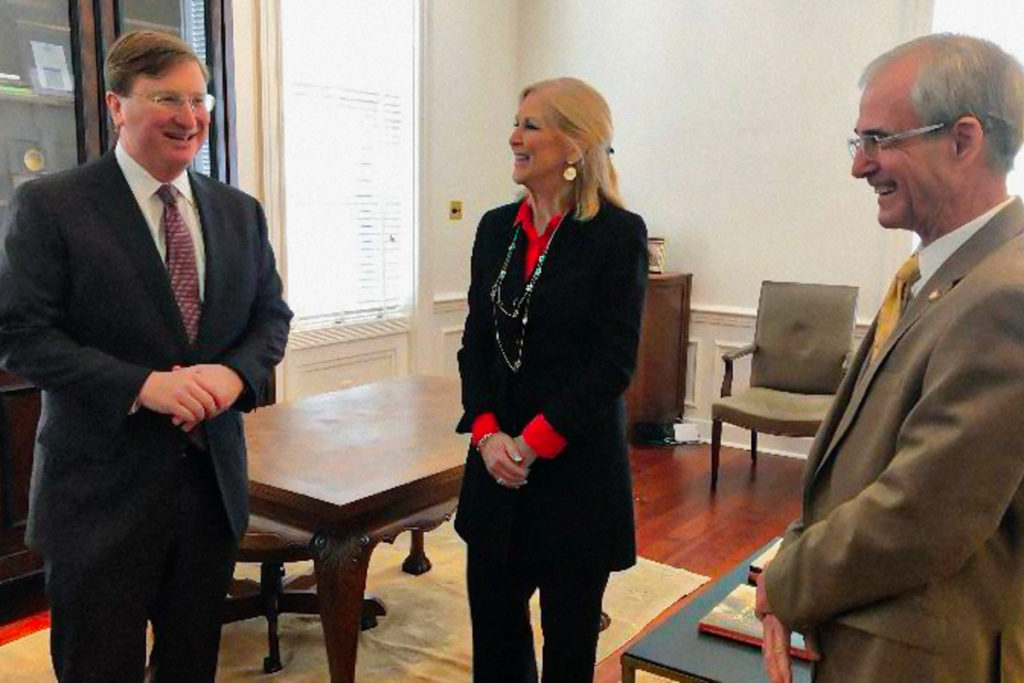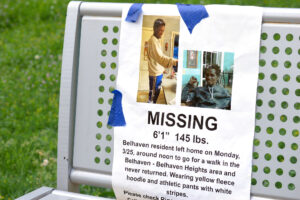Mississippi’s 15-week abortion ban could soon make its way to the U.S. Supreme Court, with the court set to decide whether to hear it on Friday. The court announced plans to consider hearing the case yesterday evening—just as the U.S. Senate voted on a party-line basis to confirm President Donald Trump’s third pick to the high court, Amy Coney Barrett.
Lower courts in 2018 and 2020 found the Mississippi law unconstitutional under the precedent Roe v. Wade set in 1973.
In court filings, though, Mississippi Attorney General Lynn Fitch is asking the nation’s high court to revisit and overturn one of Roe v. Wade’s key holdings: that “a State may not prohibit any woman from making the ultimate decision to terminate her pregnancy before (fetal) viability.”
The lower courts ruled that the Mississippi law banning abortions at 15 weeks, known as “The Gestational Age Act,” was unconstitional for that reason; medical science says fetuses generally become viable outside the womb at around 24 weeks.
“This Court should grant the petition, hold that it is illogical to impose a ‘rigid line allowing state regulation after viability but prohibiting it before viability” and “uphold the Gestational Age Act,” Attorney General Lynn Fitch wrote in a filing with the U.S. Supreme Court over the summer.
The current case, Fitch wrote in a Supreme Court filing, is “an ideal vehicle to promptly resolve” questions about Roe v. Wade and the Supreme Court’s position on abortion rights.
‘Testing the Limits of Roe’
Last year, Mississippi State Sen. Joey Fillingane, a Sumrall Republican, told this reporter in a story for another publication that Trump’s 2018 appointment of Justice Brett Kavanaugh to the Supreme Court meant that “now would be a good time to start testing the limits of Roe.”
With a 5-4 conservative court at the time (now 6-3 with Barrett), Fillangane said, he and other Mississippi Republicans hoped they could trigger a Roe “test case” by passing abortion restrictions.
Days after assuming office as attorney general this past January, Fitch gathered with Mississippi Gov. Tate Reeves and then-Mississippi State Sen. Gary Jackson, a pastor, to pray for an end to abortion. Reeves posted a clip of the prayer session on Twitter.
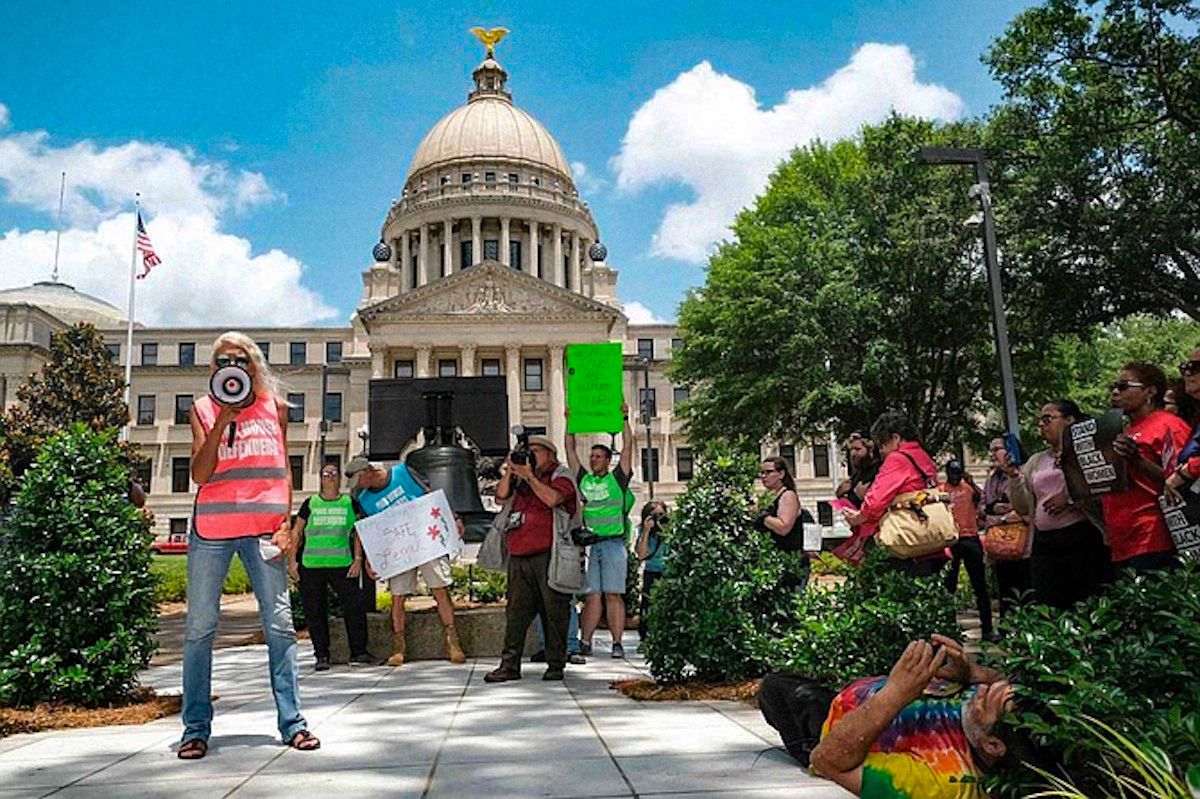
In court documents, Fitch claims that “states have substantial interests of their own beginning ‘from the outset of the pregnancy.” The Mississippi attorney general also argues that “Roe’s viability line is arbitrary” because scientific advances could change the point at which a fetus becomes “viable.”
“Roe’s viability rule is outdated,” Fitch argues.
Mississippi law already bans abortions after 20 weeks, which is still pre-viability, and the only abortion clinic in the state does not perform abortions after 16 weeks.
Fitch’s original petition for the Supreme Court to take the case, which she filed in June, claims that “the questions presented in this petition do not require the Court to overturn Roe” or a later case that reaffirmed abortion rights, Planned Parenthood v. Casey.
‘The Most Central Principle of Roe v. Wade’ at Stake
But attorneys for the Jackson Women’s Health Organization, the state’s only abortion clinic, pointed out in a subsequent brief that Fitch’s request that the Supreme Court ditch the viability rule would undermine the core of the 1973 ruling as well as the 1992 Casey decision.
“For decades, this Court has described a ‘woman’s right to terminate her pregnancy before viability’ as ‘the most central principle of Roe v. Wade,” wrote the attorneys backing the Mississippi abortion clinic, which includes members of Paul, Weiss, Rifkind, Wharton & Garrison, LLP in New York City; the Center for Reproductive Rights in New York City; and the Mississippi Center for Justice in Jackson.
The Jackson Women’s Health Organization first sued the state to block the law in 2018—the same year a Republican-led Legislature passed it. The clinic has since sued to halt a 2019 law that bans abortions once a fetal heartbeat becomes detectable, which happens at about six weeks. Federal courts have also blocked that law, though Mississippi could also appeal it to the Supreme Court.
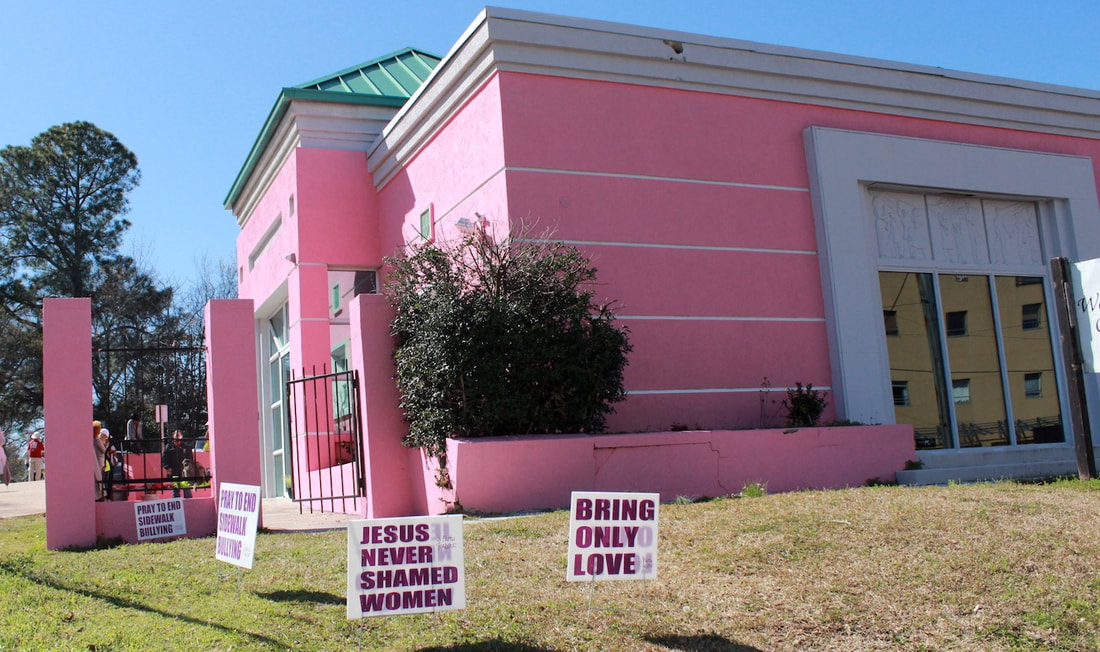
The attorneys for the clinic pointed out that a 15-week ban “subjects abortion providers to severe penalties, including license suspension or revocation” that Fitch or a future attorney general could enforce on behalf of the Mississippi State Department of Health or State Board of Medical Licensure.
Several other groups have weighed in with amicus briefs. Texas Attorney General Ken Paxton, a conservative Republican, filed a briefing supporting Mississippi’s position on behalf of Texas and with the backing of 17 other states: Alabama, Alaska, Arizona, Arkansas, Georgia, Idaho, Indiana, Kansas, Kentucky, Louisiana, Missouri, Nebraska, Ohio, Oklahoma, South Carolina, Tennessee and West Virginia.
The 18-state briefing calls on the U.S. Supreme Court to “condemn” U.S. District Court for the Southern District of Mississippi Judge Carlton W. Reeves, who is African American, for claiming in his ruling on the law that “the law represented the ‘old Mississippi’ that was ‘bent on controlling women and minorities.’”
“This Court should condemn the district court’s rhetoric. A district court is required to assume good faith, not the opposite,” the states’ brief claims.
Barrett Endorsed ‘Personhood’ Arguments
In another brief supporting the state, the Roman Catholic Archdiocese of Jackson and the Catholic Archdiocese of Biloxi argued that the Supreme Court could “look to religious authorities to shed light on issues of morality that come before the Court.”
“How is it that Mississippi law recognizes that an unborn baby can be a victim of a crime, and can have property rights, and yet the label of personhood at fifteen weeks gestation is denied them?” the dioceses argued.
The brief reflects the language of “The Personhood Amendment,” a 2011 ballot initiative in Mississippi that would have defined the word “person” to mean “every human being from the moment of fertilization, cloning, or the equivalent thereof.” A majority of Mississippi voters—58%—rejected it, though.
The 2011 initiative was so broad that a number of supporters and opponents of abortion rights agreed that it could have led to bans on abortion in all cases, including rape, incest and cases in which continuing a pregnancy endangered a woman’s life. They also worried that it would lead to bans on in-vitro fertilization and some forms of birth control including the pill.
The new Supreme Court justice, Barrett, is a conservative Catholic with a history of endorsing anti-abortion causes, including the langauge of “personhood.” She replaced liberal Justice Ruth Bader Ginsburg, who died in September. For decades, Ginsburg has voted to uphold abortion rights.
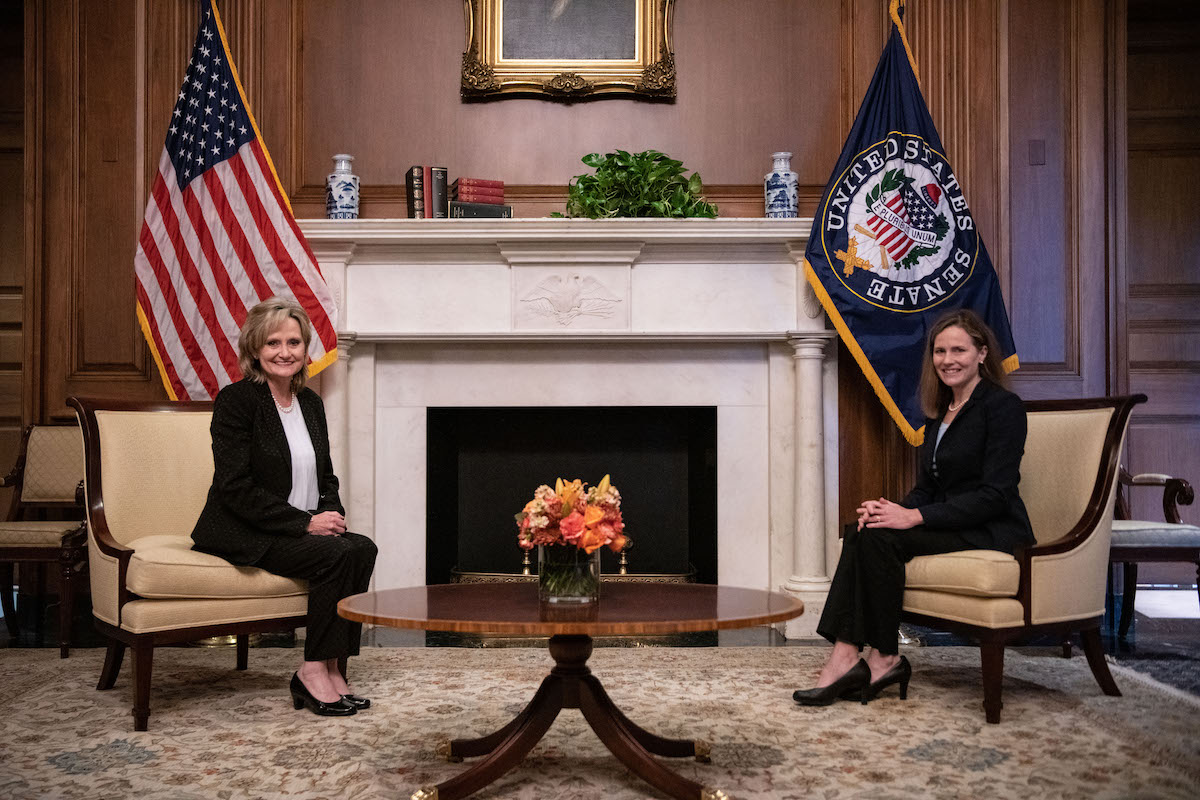
During her confirmation hearings this month, Barrett refused to say whether she believed the 1965 Supreme Court case Griswold v. Connecticut, which struck down state laws banning contraception, was rightly decided. She did say she did not believe legal contraception was “in danger of going anywhere” because it is “unthinkable any legislature would pass such a law.” Barrett also refused to say whether she believed Roe v. Wade was rightly decided, either.
But on Oct. 1, The Guardian reported that Barrett and her husband, Jesse Barrett, once signed their names to an ad in the South Bend Tribune with the St. Joseph County Right to Life organization—a group that opposes not only abortion, but also in-vitro fertilization.
“We, the following citizens of Michiana, opposed abortion on demand and defend the right to life from fertilization to natural death. Please continue to pray to end abortion,” reads the 2006 ad, evoking language similar to that used in Mississippi’s 2011 Personhood initiative.
Barrett also hinted during a 2013 speech at Notre Dame University, where she was a faculty member at the time, that she may be open to “state’s rights” arguments about abortion laws.
In January 2013, The Irish Rover, another campus publication, reported that Barrett said during her speech that month that “whether or not Roe gets overturned is irrelevant,” because the issue would then return to the states.
“If the Court doesn’t (overturn Roe), where does this leave the state?” the Irish Rover reported Barrett saying, citing state-level abortion restrictions like ultrasound requirements, waiting periods and parental consent laws.
If the Supreme Court does decide on Friday to take up the 15-week ban, hearings would likely take place sometime in the first half of 2021. Four justices of the nine-member court must agree to hear a case.


